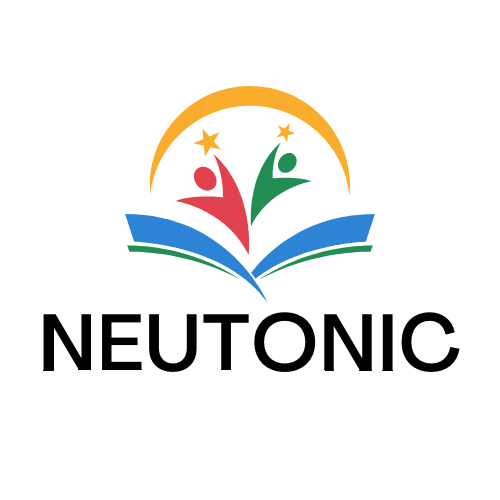As I dive into the world of early childhood education, I can’t help but feel the immense impact this field has on shaping young minds. Earning a degree in early childhood education not only opens doors for passionate individuals but also plays a crucial role in creating a solid foundation for future generations. With the right education, I can inspire children to explore, learn, and grow in a nurturing environment.
In today’s rapidly changing educational landscape, pursuing a degree in this field equips me with the skills and knowledge needed to make a real difference. Whether I’m looking to teach in a classroom, develop curriculums, or support families, these degrees offer diverse pathways to a fulfilling career. Let’s explore the various options available and how they can empower me to become an effective educator in the early years.
Key Takeaways
- Diverse Degree Options: Early childhood education degrees come in various levels, including associate, bachelor’s, and master’s degrees, each catering to different career aspirations in the field.
- Career Advancement: Earning a degree significantly enhances career opportunities, enabling graduates to become lead teachers, program coordinators, or educational leaders in diverse settings.
- Skill Development: Degree programs provide essential skills such as classroom management, communication, and cultural competence, equipping educators to meet the varied needs of young learners.
- Accreditation Matters: Choosing an accredited program ensures quality education and can improve career prospects, as graduates from accredited institutions tend to perform better professionally.
- Flexible Learning Options: Educational pathways now include online programs, offering flexibility for those balancing work and study while still maintaining rigorous academic standards.
- Importance of Certifications: Additional certifications in specialized areas can enhance professional credentials, improve job prospects, and increase earning potential within the early childhood education field.
Degrees In Early Childhood Education
Degrees in early childhood education provide essential knowledge and skills for individuals aiming to impact young lives positively. Various degree levels exist, including associate, bachelor’s, and master’s degrees, each catering to different career aspirations.
Associate Degree
An associate degree typically requires two years of study. It covers fundamental topics such as child development, learning theories, and curriculum design. Graduates often find positions as teaching assistants or daycare providers.
Bachelor’s Degree
A bachelor’s degree usually involves four years of coursework. This degree offers in-depth studies in areas like educational psychology, family relations, and classroom management. Graduates can take on roles as lead teachers, program coordinators, or administrators in early childhood settings.
Master’s Degree
A master’s degree often requires an additional one to two years beyond a bachelor’s degree. This advanced program delves into research methodologies and leadership strategies within early childhood education. Graduates frequently pursue positions as educational leaders, researchers, or college instructors.
Online Programs
Many institutions now offer online degree programs, providing flexibility for those balancing work and education. Online degrees often mirror traditional programs in curriculum and rigor, allowing for a comprehensive learning experience from home.
Certifications
In addition to degrees, various certifications enhance professional credentials. These include specialized training in areas such as child growth and development, curriculum planning, or special needs education. Certifications often improve job prospects and increase earning potential.
Degrees in early childhood education equip individuals with the tools needed to foster positive learning environments. Whether pursuing an associate, bachelor’s, or master’s degree, each path opens doors to fulfilling careers dedicated to nurturing children’s growth and development.
Types of Degrees Available
 I explore various degrees available in early childhood education, each designed to meet specific career goals. Here’s a breakdown of the most common degree types.
I explore various degrees available in early childhood education, each designed to meet specific career goals. Here’s a breakdown of the most common degree types.
Associate Degrees
Associate degrees require two years of focused study in early childhood education. These programs prepare graduates for entry-level positions such as teaching assistants, daycare providers, or child care workers. Core courses often include child development, learning environments, and family engagement. Many community colleges offer affordable associate degree options, enabling students to gain practical, hands-on experience during their studies.
Bachelor’s Degrees
Bachelor’s degrees typically involve four years of coursework and provide a comprehensive understanding of child development, teaching methods, and educational psychology. Graduates can pursue roles as lead teachers, program coordinators, or curriculum developers in various educational settings. Alongside classroom experience, bachelor’s programs often emphasize the importance of creating inclusive and engaging learning environments. Many institutions offer specialization options, allowing students to focus on specific areas like special education or administration.
Master’s Degrees
Master’s degrees generally require one to two additional years beyond a bachelor’s degree. These programs focus on advanced concepts in early childhood education, such as research methodologies, policy analysis, and leadership strategies. Graduates often assume roles as educational leaders, program directors, or college instructors. Master’s programs may also prepare individuals for licensure or certification advancements, enabling them to influence educational practices on a broader scale. Online options provide flexibility for busy professionals seeking to elevate their careers.
Benefits of Earning a Degree
Earning a degree in early childhood education provides numerous advantages. It enhances career prospects and equips individuals with essential skills for fostering child development.
Career Opportunities
Career opportunities expand significantly with a degree in early childhood education. Graduates can pursue roles as lead teachers, curriculum developers, or educational administrators. Additional positions include childcare center directors, special education teachers, or educational consultants. Essentially, the degree opens doors to diverse environments, such as public and private schools, childcare facilities, and community organizations. Many states require formal education for licensure, making a degree critical for career advancement.
Skill Development
Skill development is a core benefit of earning this degree. The program focuses on essential competencies, including communication, assessment strategies, and classroom management. Graduates acquire knowledge of child development theories, fostering the ability to meet varied developmental needs. The degree also emphasizes cultural competence, ensuring effective engagement with families from diverse backgrounds. Collaborative skills are honed through group projects and practical experiences. Overall, these skills create a strong foundation for positively impacting children’s educational experiences.
Choosing the Right Degree Program
Selecting the appropriate degree program in early childhood education involves careful consideration of several factors. Accreditation and learning format play critical roles in your decision.
Accreditation and Quality
Accreditation ensures that the degree program meets high educational standards. Programs accredited by organizations like the National Association for the Education of Young Children (NAEYC) provide a solid educational foundation. Quality programs emphasize effective teaching strategies, child development principles, and ethical practices. I prioritize programs that hold regional accreditation, as they often enhance transferability and recognition of credits. Research verifies that graduates from accredited programs tend to perform better in their careers than those from non-accredited institutions.
Online vs. In-Person Learning
The choice between online and in-person learning affects flexibility and engagement. Online programs offer convenience, allowing you to balance work, family, and education. Many institutions provide asynchronous classes, which enable me to study at my own pace. In-person programs often facilitate hands-on experience, fostering direct interaction with instructors and peers. If you prefer a social learning environment, in-person classes might suit you better. I find that some hybrid models combine both formats, offering the best of both worlds for flexibility and engagement.
Earning a degree in early childhood education is a transformative step for anyone passionate about shaping young lives. It not only equips you with essential skills but also positions you to make a lasting impact in various educational roles.
As I reflect on the opportunities this field offers I realize that the right degree can open doors to fulfilling careers that contribute to children’s development. Whether you choose an associate bachelor’s or master’s program the journey is rewarding and vital for nurturing future generations.
Investing in your education today means you’re investing in a brighter tomorrow for countless children.”





